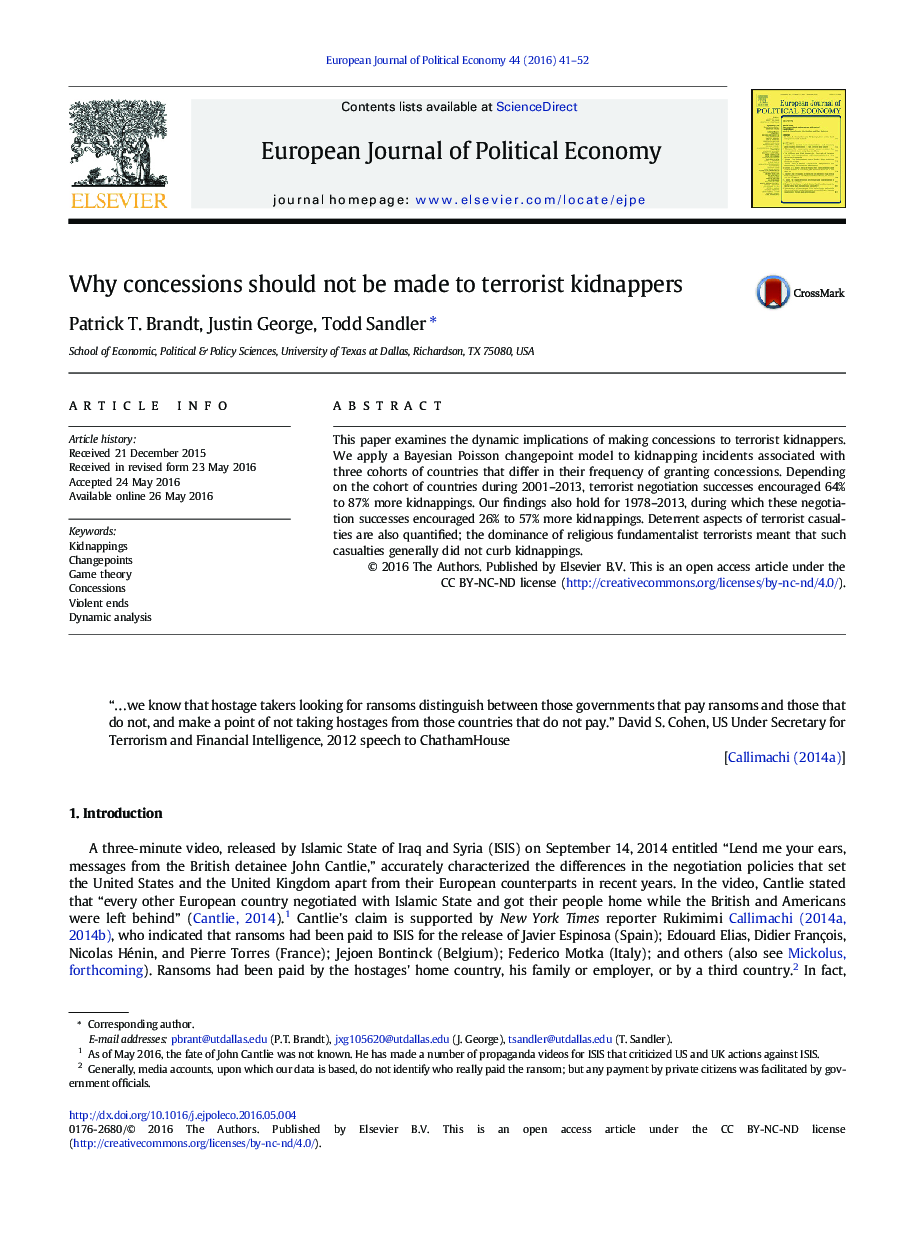| Article ID | Journal | Published Year | Pages | File Type |
|---|---|---|---|---|
| 5067868 | European Journal of Political Economy | 2016 | 12 Pages |
â¢A unique data set of transnational terrorist kidnappings informs the estimates.â¢Terrorist negotiation successes encourage 64 to 87% more kidnappings for 2001-2013.â¢Casualties suffered by terrorists during kidnappings have little to no deterrence.â¢Similar findings hold for 1978-2013 and 1978-2000 for transnational kidnappings.â¢Negotiation successes encourage 26% to 57% more kidnappings for 1978-2013.
This paper examines the dynamic implications of making concessions to terrorist kidnappers. We apply a Bayesian Poisson changepoint model to kidnapping incidents associated with three cohorts of countries that differ in their frequency of granting concessions. Depending on the cohort of countries during 2001-2013, terrorist negotiation successes encouraged 64% to 87% more kidnappings. Our findings also hold for 1978-2013, during which these negotiation successes encouraged 26% to 57% more kidnappings. Deterrent aspects of terrorist casualties are also quantified; the dominance of religious fundamentalist terrorists meant that such casualties generally did not curb kidnappings.
Graphical abstractDownload full-size image
